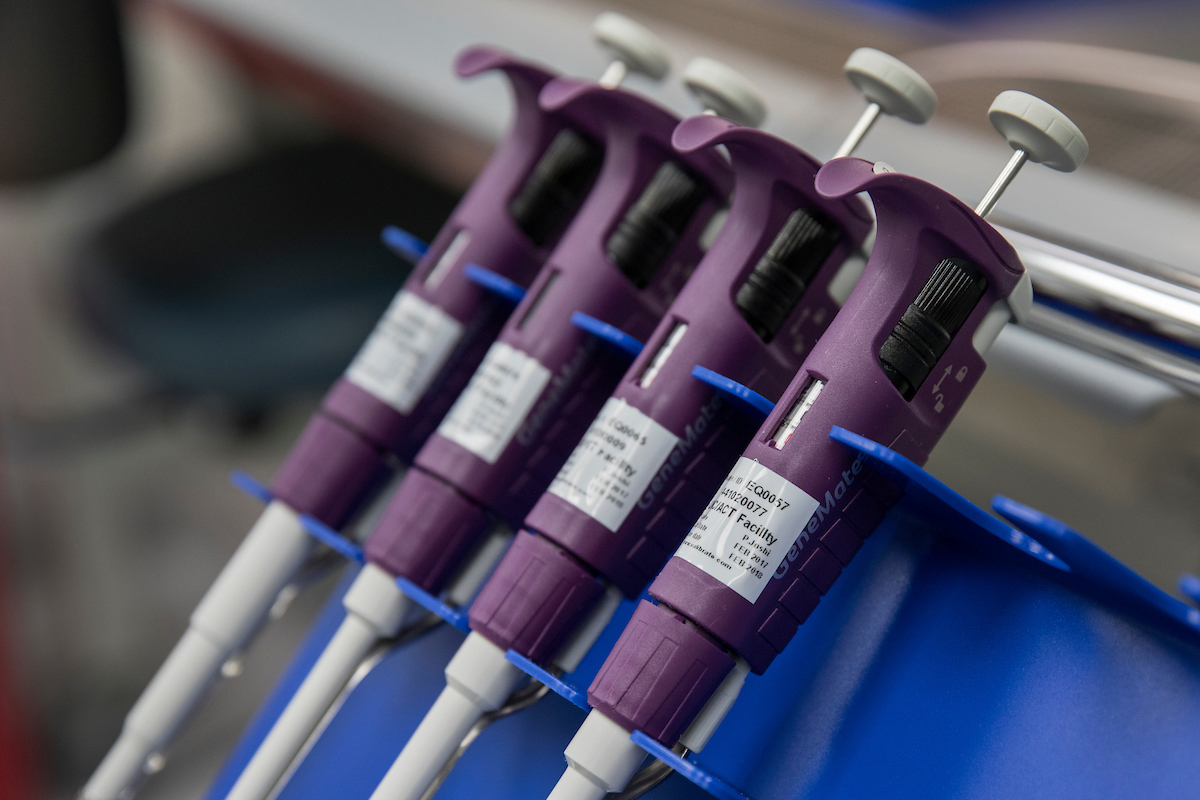New study finds link between teenage drinking and high-grade prostate cancer later in life
Study participants who drank heavily early in life were three times more likely to be diagnosed with an aggressive form of prostate cancer.

(Chapel Hill, N.C.— August 23, 2018) – A new study out of the University of North Carolina at Chapel Hill has found a link between early-life alcohol consumption and aggressive, high-grade prostate cancer. The study also found that heavy cumulative alcohol consumption over the course of a man’s life had a similar association with this type of prostate cancer.
The research was published in the journal Cancer Prevention Research on August 23.
“There’s been relatively little progress in identifying risk factors for prostate cancer,” said Emma Allott, senior author for the study. “Other hormonally regulated cancers, like breast cancer, already have a known association with alcohol use. But the role that alcohol consumption may have in the development of prostate cancer, especially over the life course, isn’t as well understood, so it remains an important area of study.”
Allott led the research, along with her collaborators, while she was an assistant professor of nutrition in the Gillings School of Global Public Health at UNC-Chapel Hill. Allott has since joined Queen’s University Belfast as a lecturer in molecular cancer epidemiology at the Centre for Cancer Research and Cell Biology.
The team of researchers evaluated survey data obtained from 650 men at the time of prostate biopsy. Men who reported consuming more than seven alcoholic drinks weekly as teenagers between the ages of 15 and 19 were three times more likely to be diagnosed with high-grade prostate cancer compared with men who reported no alcohol use during these years. Men who had seven or more alcoholic beverages a week throughout each decade of life were also three times more likely to be diagnosed with high-grade prostate cancer at the time of biopsy.
Prostate cancer is the most commonly diagnosed non-skin cancer in U.S. men and the second leading cause of male cancer deaths. The prostate develops rapidly during puberty and, as a result, scientists have hypothesized that boys may be more susceptible to cancer-causing substances during their adolescent years.
“We think that prostate cancer develops over the course of many years or even decades, so studies like ours are working toward a clearer understanding not only of what the specific risk factors are, but how they may affect prostate biology at different stages of life,” said Allott.
Not all prostate cancers are high-grade, or the clinically significant, aggressive form of prostate cancer that grows quickly and can potentially lead to death. The researchers sought to investigate the potential relationship between early-life alcohol consumption and high-grade, prostate cancer, believing that it’s most important to identify risk factors for the aggressive form of the cancer. The researchers did not find an association between alcohol use and other less aggressive forms of prostate cancer.
Allott and her team evaluated survey data from a group of racially diverse men, ages 49-89 years, undergoing prostate biopsy at the Durham Veterans Affairs Medical Center between 2007 and 2018. Men completed a survey to assess the average number of alcoholic beverages consumed weekly during each decade of life, categorizing this as zero, one to six, or seven or more drinks each week to determine age-specific and cumulative lifetime alcohol intake.
The research was limited by its reliance on men’s recall of their historic alcohol intake. This could have resulted in biased responses, although the majority of men reported their alcohol intake prior to knowing their biopsy results. Additional research is needed to determine the risk factors for prostate cancer.
Allott’s research collaborators included Jamie Michael, Amanda De Hoedt and Charlotte Bailey of Durham Veterans Affairs Medical Center, Lauren Howard of Duke Cancer Institute, Sarah Markt and Lorelei Mucci of Harvard University, and Stephen Freedland of Durham Veterans Affairs Medical Center and Cedars-Sinai Medical Center.
The research was funded by the American Institute for Cancer Research, the Irish Cancer Society and the National Institutes of Health.
-Carolina-
About the University of North Carolina at Chapel Hill
The University of North Carolina at Chapel Hill, the nation’s first public university, is a global higher education leader known for innovative teaching, research and public service. A member of the prestigious Association of American Universities, Carolina regularly ranks as the best value for academic quality in U.S. public higher education. Now in its third century, the University offers 77 bachelor’s, 111 master’s, 65 doctorate and seven professional degree programs through 14 schools and the College of Arts and Sciences. Every day, faculty, staff and students shape their teaching, research and public service to meet North Carolina’s most pressing needs in every region and all 100 counties. Carolina’s nearly 330,000 alumni live in all 50 states, the District of Columbia and 149 countries. More than 169,000 live in North Carolina.
University Communications: Audrey Smith, (919) 445-8555, audrey.smith@unc.edu


